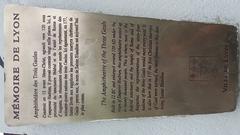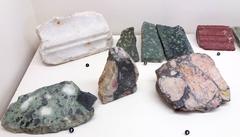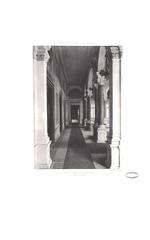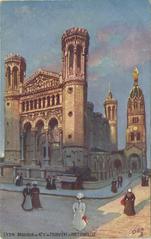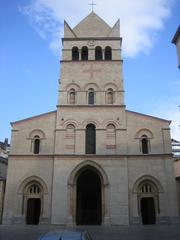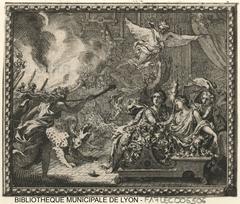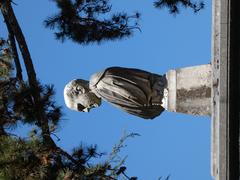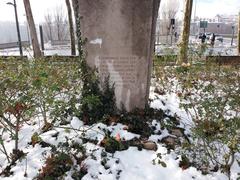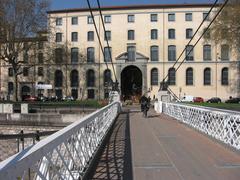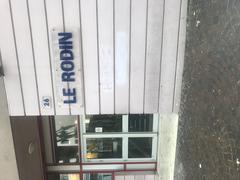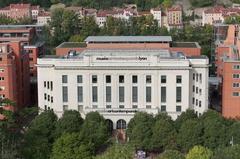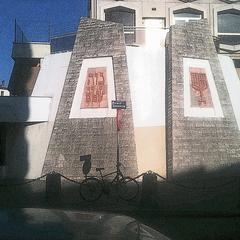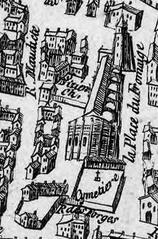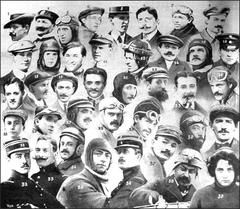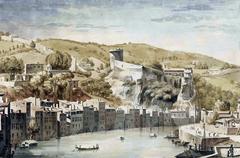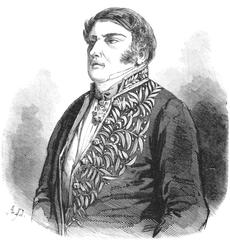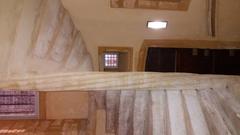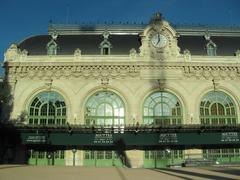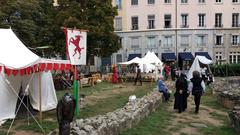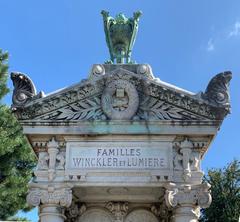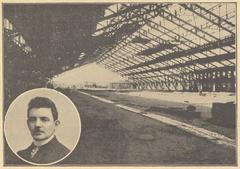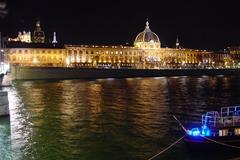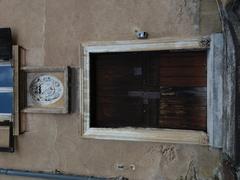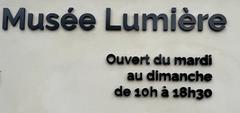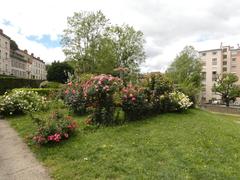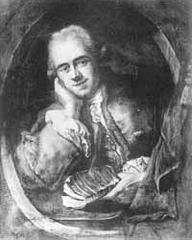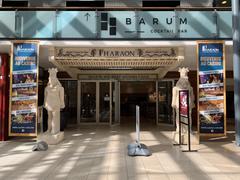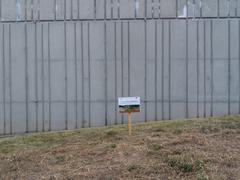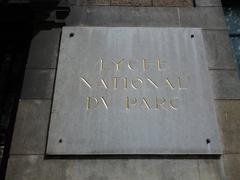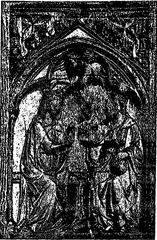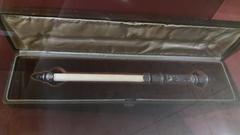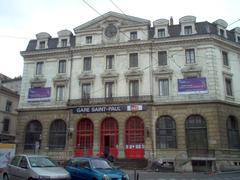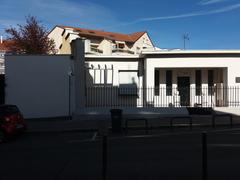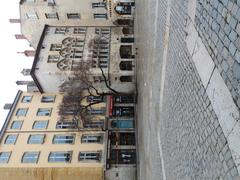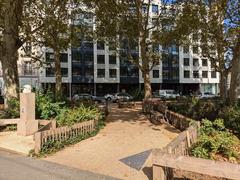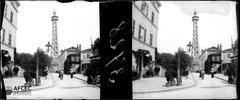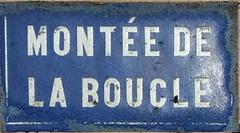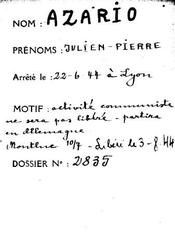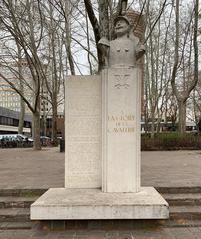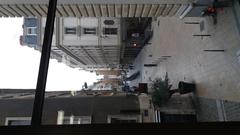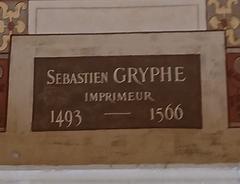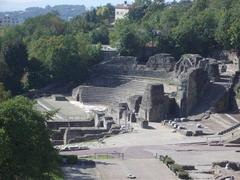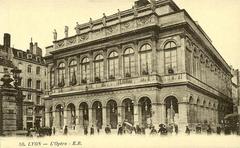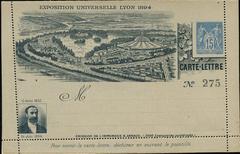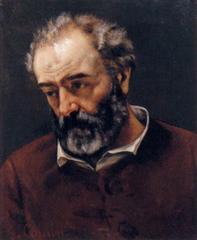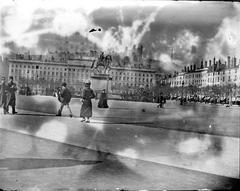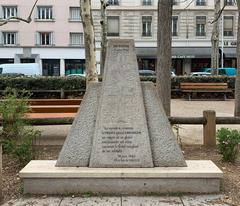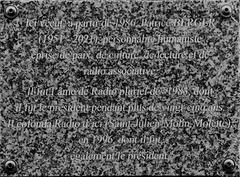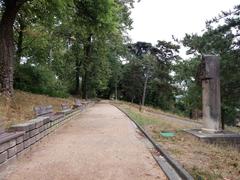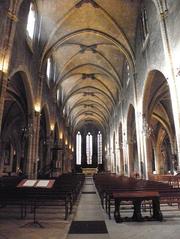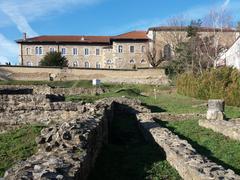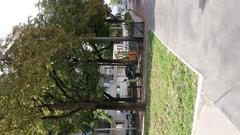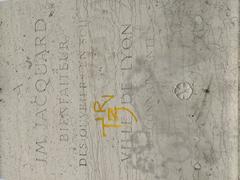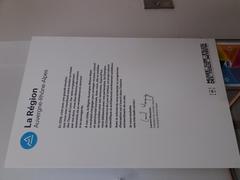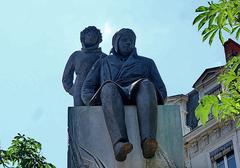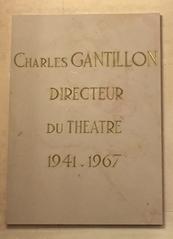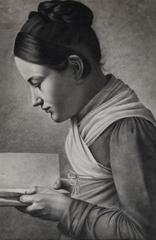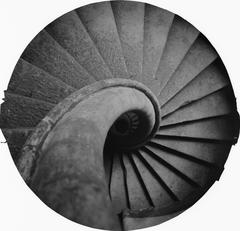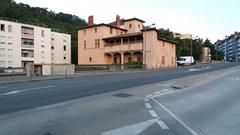
Auguste Chauveau in Lyon, France: Visiting Hours, Tickets, and Historical Significance
Date: 04/07/2025
Introduction: The Legacy of Auguste Chauveau in Lyon
Lyon, a city celebrated for its cultural richness and scientific achievements, is closely linked to the enduring legacy of Jean-Baptiste Auguste Chauveau (1827–1917). As a pioneering veterinarian, physiologist, and microbiologist, Chauveau’s research laid the groundwork for advances in cardiovascular physiology, infectious diseases, and veterinary medicine. His innovative work—spanning from early cardiac catheterization to experimental studies on tuberculosis—helped shape modern science and public health policies, cementing Lyon’s role as a center for scientific scholarship.
For visitors, Lyon offers a variety of sites that commemorate Chauveau’s influence, including the historic École Nationale Vétérinaire de Lyon (now VetAgro Sup), commemorative plaques, the picturesque Quai Chauveau, and the city’s vibrant Croix-Rousse district. These places together showcase both Chauveau’s contributions and Lyon’s broader scientific and cultural heritage as a UNESCO World Heritage Site.
This guide provides a comprehensive overview of Chauveau’s life, scientific achievements, and practical details for visiting related sites—ideal for science enthusiasts, history buffs, and cultural travelers alike (Encyclopedia.com; Tribune de Lyon; Lyon Tourism Official Site).
Contents
- Introduction
- Chauveau’s Early Life and Academic Path
- Major Scientific Contributions
- Cardiovascular Innovations
- Advances in Microbiology and Infectious Diseases
- Bioenergetics and Muscle Physiology
- Key Sites to Visit in Lyon
- VetAgro Sup (École Nationale Vétérinaire de Lyon)
- Commemorative Locations: Quai Chauveau and Plaques
- Museums Highlighting Scientific Heritage
- Practical Visitor Information
- Chauveau’s Enduring Legacy
- Frequently Asked Questions (FAQs)
- Further Reading and Resources
Chauveau’s Early Life and Academic Path
Born in Villeneuve-la-Guyard, France, on November 21, 1827, Auguste Chauveau was the son of a blacksmith. He demonstrated a strong aptitude for science early on, studying at public schools before entering the École nationale vétérinaire d’Alfort in 1844, where he graduated top of his class in 1848. Chauveau began his illustrious academic career as chef de travaux in anatomy and physiology at the Lyon veterinary school, setting the stage for decades of groundbreaking research (Encyclopedia.com; Prabook).
His career in Lyon flourished—by 1863 he was chair of anatomy and physiology at the veterinary school, later directing the institution and establishing a special chair for experimental and comparative medicine. Chauveau’s influence extended nationally as he became inspector general of veterinary schools and a prominent member of the French Academy of Sciences.
Major Scientific Contributions
Cardiovascular Innovations
Chauveau performed some of the earliest cardiac catheterizations, using horses to develop techniques that clarified heart function and intracardiac pressure dynamics. By collaborating with figures like Étienne-Jules Marey, he helped invent the sphygmograph and horizontal recording manometer, tools that advanced understanding of the cardiac cycle and blood flow (Wikipedia; Tribune de Lyon).
Advances in Microbiology and Infectious Diseases
Inspired by Louis Pasteur, Chauveau was an early proponent of germ theory and vaccination. He conducted groundbreaking studies on tuberculosis, demonstrating its transmissibility from humans to cattle and influencing public health practices such as slaughterhouse inspection. His research anticipated the particulate nature of viruses and contributed to the creation of infectious disease laboratories in Lyon (Encyclopedia.com; Tribune de Lyon).
Bioenergetics and Muscle Physiology
Later in his career, Chauveau turned his attention to the energetics of muscular work, demonstrating glucose’s essential role in muscle function—a foundational discovery for modern biochemistry (Prabook).
Key Sites to Visit in Lyon
VetAgro Sup (École Nationale Vétérinaire de Lyon)
Location: 1 Avenue Bourgelat, 69280 Marcy-l’Étoile, Lyon Metropole
Significance: The world’s oldest veterinary school, where Chauveau taught and conducted pioneering research. The campus features scientific archives and commemorative plaques honoring Chauveau’s achievements (VetAgro Sup).
- Visiting Hours: Monday to Friday, 9:00 AM–5:00 PM. Museum and archives may have limited hours—check the official website or contact administration for updates.
- Tickets: Admission to the museum and archives is often free, but guided tours require advance booking.
- Guided Tours: Occasionally offered, especially during open days or special events.
- Accessibility: The campus is wheelchair accessible and reachable by public transport from central Lyon.
Quai Chauveau and Commemorative Plaques
Quai Chauveau:
Located along the right bank of the Saône, the Quai Chauveau is a public promenade named after Auguste Chauveau. The original monument, inaugurated in 1926, has been relocated to VetAgro Sup’s campus, but the quay remains a symbolic site (Wikipedia).
- Visiting Hours: Open 24/7; free and accessible to pedestrians and cyclists.
- Visitor Tips: Enjoy scenic river views and explore commemorative plaques nearby.
Commemorative Plaques:
Plaques honoring Chauveau can be found at VetAgro Sup and on Rue Auguste Chauveau in Lyon’s 3rd arrondissement. Most plaques are in French—consider using a translation app or guided tour for context.
Museums Highlighting Scientific Heritage
-
Musée d’Histoire de Lyon (Lyon History Museum):
- Location: 1 Place du Petit Collège, 69005 Lyon
- Hours: Tuesday to Sunday, 10:00 AM–6:00 PM; closed Mondays.
- Tickets: Standard €8; discounts for students, seniors, Lyon City Card holders; under 18s free.
- Features: Exhibits on Lyon’s scientific institutions and figures, including Chauveau (en.visiterlyon.com).
-
Musée des Beaux-Arts:
- Occasionally features exhibitions on art and science intersections (frenchly.us).
-
Musée Gadagne:
- Explores Lyon’s urban and scientific history (Musée Gadagne).
Practical Visitor Information
- Language: French is predominant; some museums and tours offer English-language options.
- Tickets and Tours: Free access to Quai Chauveau and Rue Auguste Chauveau. Museum and VetAgro Sup visits may require tickets or prior booking—consult official websites.
- Transportation: Lyon’s public transit connects all major sites. VetAgro Sup is accessible by bus from central Lyon.
- Accessibility: Most sites are accessible for visitors with reduced mobility; check specific sites for details.
- Lyon City Card: Offers free or discounted entry to museums, tours, and public transport (Lyon City Card).
Chauveau’s Enduring Legacy
Chauveau’s research continues to influence veterinary and medical science. His pioneering work in physiology, infectious disease, and bioenergetics remains foundational, and his advocacy for vaccination protocols resonates in modern public health. Lyon honors him through educational institutions, public spaces, and periodic exhibitions, reflecting the city’s pride in its scientific heritage (World City History).
Frequently Asked Questions (FAQs)
Q: What are the visiting hours for VetAgro Sup and related sites?
A: VetAgro Sup is generally open Monday to Friday, 9:00 AM–5:00 PM. The Quai Chauveau is open 24/7. Check museum websites for specific hours.
Q: Are tickets required?
A: Quai Chauveau and Rue Auguste Chauveau are free to visit. Museums may charge admission; VetAgro Sup’s museum often requires prior arrangement.
Q: Are guided tours available?
A: Yes, especially for VetAgro Sup and city museums. It’s best to book in advance.
Q: Are these sites accessible for people with disabilities?
A: Most major sites are accessible; check individual websites for details.
Recommendations for an Enriching Visit
- Pair visits to VetAgro Sup and the Quai Chauveau with walks through Vieux Lyon and Croix-Rousse for a full historical experience.
- Utilize the Lyon City Card for efficient travel and museum access.
- Sample local cuisine at a bouchon in Vieux Lyon after your explorations (Touropia).
- Download the Audiala app for self-guided audio tours and up-to-date event information.
Summary and Visitor Tips
Exploring Auguste Chauveau’s legacy in Lyon offers a window into the city’s scientific and cultural achievements. From the historic VetAgro Sup campus to the scenic Quai Chauveau and informative museums, visitors can immerse themselves in the life of a scientific pioneer while enjoying Lyon’s vibrant atmosphere. Consult official resources and local tourism platforms for the latest information on hours, tours, and events to make the most of your visit (Tribune de Lyon; VetAgro Sup; Lyon Tourism Official Site).
Sources and Further Reading
- Encyclopedia.com: Chauveau, Jean-Baptiste Auguste
- Tribune de Lyon: Qui était Auguste Chauveau?
- Wikipedia: Auguste Chauveau
- Prabook: Auguste Chauveau
- Lyon Tourism Official Site
- VetAgro Sup
- World City History: The fascinating history of Lyon
All information is based on the latest available sources as of July 4, 2025. For up-to-date details, always consult official websites.








